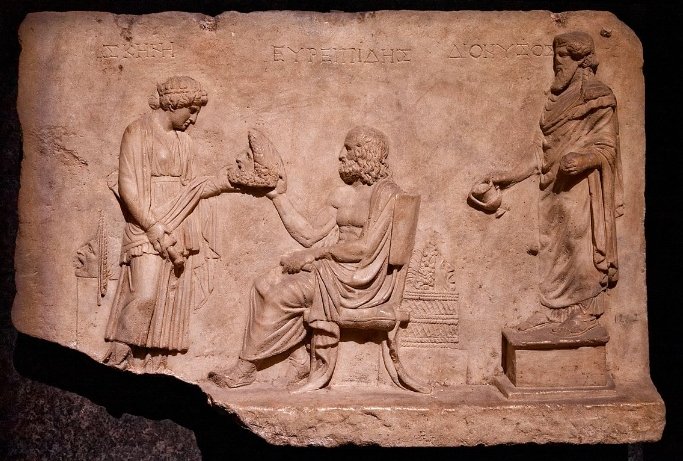In a remarkable archaeological breakthrough, scholars have uncovered fragments of lost Euripides tragedies on an ancient Egyptian papyrus. This discovery, made by researchers from the University of Colorado Boulder, includes excerpts from the plays “Polyidus” and “Ino.” The find, which is considered one of the most significant in decades, sheds new light on the works of one of ancient Greece’s most renowned playwrights. The fragments were identified in a digitized copy of a papyrus sent by the Egyptian Ministry of Tourism and Antiquities, marking a milestone in classical studies.
The Discovery of Lost Tragedies
In late 2022, a digitized copy of an ancient Egyptian papyrus was sent to Yvona Trnka-Amrhein, an assistant professor of classics at the University of Colorado Boulder. The papyrus, unearthed at the ancient city of Philadelphia in Egypt, contained 98 lines of text. Upon examination, Trnka-Amrhein realized the text was from an ancient Greek tragedy. She enlisted the help of her colleague, John Gibert, an expert in Euripides fragments, to analyze the papyrus further.
Their meticulous study revealed that the papyrus contained previously unknown scenes from Euripides’ plays “Polyidus” and “Ino.” This discovery is particularly significant as it includes 80 percent new material, offering fresh insights into these lost works. The fragments provide a rare glimpse into the storytelling and dramatic techniques of Euripides, enhancing our understanding of ancient Greek literature.

The discovery has sparked excitement among scholars and enthusiasts of classical studies. It represents a major advancement in the field, highlighting the importance of continued archaeological exploration and the potential for uncovering more lost works of ancient literature.
Significance of the Fragments
The newly discovered fragments of “Polyidus” and “Ino” are a testament to Euripides’ enduring legacy. Euripides, who lived in the 5th century B.C.E., is known for his complex characters and innovative use of dramatic structure. His works have had a profound influence on Western drama, and the discovery of these fragments adds to his already impressive body of work.
“Polyidus” retells an ancient Cretan myth involving King Minos and Queen Pasiphaë, who demand that the seer Polyidus resurrect their son Glaucus after he drowns in a vat of honey. The fragments provide new details about the characters and plot, enriching our understanding of the play’s themes and narrative.
“Ino,” another lost tragedy, explores the story of Ino, the daughter of Cadmus and Harmonia, who becomes a sea goddess. The newly discovered scenes offer insights into the play’s depiction of divine intervention and human suffering, themes that are central to Euripides’ work. These fragments not only enhance our appreciation of Euripides’ storytelling but also contribute to the broader study of ancient Greek mythology and drama.
Implications for Classical Studies
The discovery of the Euripides fragments has far-reaching implications for the field of classical studies. It underscores the importance of interdisciplinary collaboration and the use of modern technology in archaeological research. The digitized copy of the papyrus allowed scholars to analyze the text in detail, leading to the identification of the lost fragments.
This find also highlights the potential for future discoveries in the field. The ancient city of Philadelphia, where the papyrus was unearthed, may hold more hidden treasures waiting to be uncovered. Continued exploration and study of such sites could yield further insights into the works of ancient playwrights and the cultural history of the region.
The rediscovery of these Euripides fragments is a reminder of the enduring relevance of classical literature. It provides a unique opportunity to revisit and reinterpret the works of one of ancient Greece’s greatest playwrights. As scholars continue to study these fragments, they will undoubtedly contribute to a deeper understanding of Euripides’ legacy and the rich literary tradition of ancient Greece.














